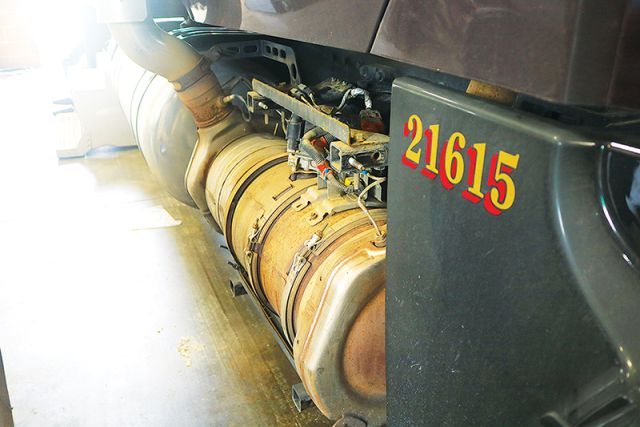To Delete Or Not To Delete

During Donald Trump's presidency, his administration took significant steps to reduce the regulatory power of the Environmental Protection Agency (EPA). The goal was to ease restrictions on various industries, including transportation, fossil fuels, and manufacturing. One of the most notable impacts of these rollbacks was on emissions regulations, which directly affected the Class A diesel trucking industry. While these changes altered the landscape of emissions enforcement, they did not grant truckers the freedom to delete or disable their emissions systems.
Trump’s EPA Rollbacks and Their Impact on Class A Diesel Trucks
The trucking industry has long faced stringent environmental regulations, particularly concerning emissions standards set by the EPA. Under the Trump administration, several of these regulations were weakened or rolled back to benefit businesses and reduce operational costs. Some of the key policy changes included:
1. Relaxation of Fuel Efficiency Standards – The administration rolled back Obama-era fuel efficiency standards, which had required trucks and other heavy-duty vehicles to significantly cut carbon emissions. The justification was that these regulations increased costs for manufacturers and truckers.
2. Changes to Emissions Testing Requirements – The EPA under Trump revised emissions testing protocols, making compliance more lenient for diesel engine manufacturers. This allowed more leeway in meeting emissions targets without strict enforcement.
3. Reduction in Enforcement Actions – The administration cut back on enforcement actions against companies violating environmental rules, signaling a shift in priorities away from stringent regulatory oversight.
4. Rolling Back the Clean Power Plan – While mainly focused on power plants, this rollback indirectly impacted the trucking industry by reducing regulatory pressure on fuel producers, leading to potential cost savings for diesel fuel production.
Many in the trucking industry welcomed these changes, as they were seen as reducing irksome costs and regulatory constraints. However, they also led to confusion, with some believing that the deregulation meant an end to emissions compliance altogether.
Why Truckers Cannot Simply Delete Their Emission Systems
Despite these rollbacks, federal laws regarding emissions control systems on diesel trucks remain in place. Many truckers mistakenly believe that these deregulations mean they can legally remove or “delete” emissions components such as Diesel Particulate Filters (DPFs), Exhaust Gas Recirculation (EGR) systems, and Selective Catalytic Reduction (SCR) units. This is not the case.
1. Emission Deletion is Still Illegal – Under the Clean Air Act, it is illegal to tamper with or remove emissions control devices from diesel engines. Even though enforcement may have been reduced under the Trump administration, the laws themselves were never repealed.
2. Severe Penalties for Deleting Emissions Systems – The EPA and state agencies continue to fine individuals and companies caught with deleted emissions systems. Fines can range from thousands to millions of dollars, depending on the scope of the violation.
3. State-Level Regulations Still Apply – While federal rollbacks have changed enforcement priorities, individual states like California still have strict emissions regulations and testing requirements. Many states also conduct emissions inspections that would detect illegal modifications.
4. Resale and Manufacturer Compliance – Truck manufacturers still have to comply with emissions laws, meaning that new trucks are built with emissions systems intact. Removing these systems can also make a truck illegal for resale or operation in regulated states.
The Real Impact on the Trucking Industry
While the Trump administration’s EPA rollbacks may have provided some relief to trucking companies by reducing regulatory burdens, the overall impact on emissions compliance has been misunderstood by some truckers. These changes primarily affected large-scale industry regulations rather than individual vehicle compliance requirements.
For fleets and owner-operators, the rollback of emissions regulations may have contributed to lower costs in certain areas, such as reduced fuel efficiency requirements or fewer compliance inspections. However, emissions system tampering remains a serious offense that can result in significant legal and financial consequences.
The Future of Emissions Regulations for Class A Diesel Trucks
With subsequent administrations reinstating or strengthening environmental regulations, truckers should not assume that leniency under one administration means permanent deregulation. The Biden administration has reversed many Trump-era rollbacks, reintroducing stricter emissions standards and increasing enforcement actions against emissions violations.
For truckers, this means staying compliant with emissions laws remains critical. The best course of action is to maintain emissions systems properly, ensure legal compliance, and stay informed about changing regulations. While some may see emissions control as an inconvenience, avoiding hefty fines and legal trouble is worth the effort in the long run
Written by: Jordan Greathouse, Pittsburgh Power , 3600 South Noah Drive, Saxonburg, PA, 16056 Phone (724) 360-4080; Website: www.Pittsburghpower.com
